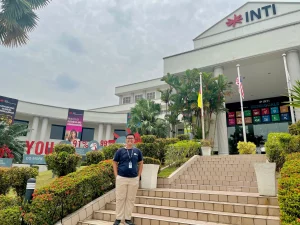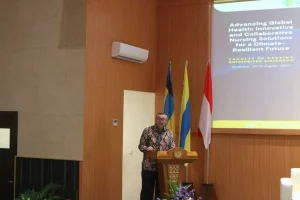UNAIR NEWS – The new year’s discount season is a much-anticipated time for shoppers, but the thrill of shopping can disrupt financial stability if not approached with caution. Professor Dr. Tika Widiastuti, SE, MSi, a Syariah Economics expert from UNAIR’s Faculty of Economics and Business, has shared practical guidelines to maintain financial health during this discount frenzy.
Distinguishing needs from wants
Prof. Widiastuti emphasized that the cornerstone of effective financial management is understanding the distinction between needs and wants. “As consumers, it is essential to allocate spending towards fulfilling needs rather than succumbing to mere desires,” she explained.
She explained that genuine needs are defined by their utility and tangible benefits. “What we purchase should bring blessings and add value to our lives without distancing us from Allah,” she remarked.
To help make this distinction, she recommended using the Islamic hierarchy of needs: Dharuriyah (essential), Hajiyat (supportive), and Tahsiniyat (complementary). “Essential needs like food, transportation, and shelter must be fulfilled first before allocating funds for other expenditures,” she advised.
Practical financial allocation guidelines
Prof. Widiastuti outlined a simple formula for managing income effectively. The first step, she noted, is prioritizing charitable giving. “Donating 10% of your income can open greater opportunities for sustenance,” she said. She recommended allocating 40% of income to cover essential living expenses, including food, transportation, and household needs. An additional 30% should go toward paying productive debts or installments, with the remaining portion saved for emergency funds or investments.
“Emergency funds are vital to maintaining financial stability during unforeseen circumstances. Meanwhile, investments provide a pathway to long-term financial growth,” she noted. She also warned against the pitfalls of a high-cost lifestyle, which often drains finances without offering substantial benefits.
Tackling trends and FOMO wisely
In today’s digital era, following shopping trends has become easier than ever, making impulse buying a significant risk. Prof. Widiastuti warned about the financial strain caused by overspending to keep up with trends. “With so many media channels promoting trends, we must be more discerning in our spending. Avoid letting the fear of missing out (FOMO) disrupt your financial well-being,” she cautioned.
To mitigate these risks, she advised consumers to plan their purchases carefully by setting a budget before shopping. While discounts can be appealing, it’s important to resist the urge to buy unnecessary items.
By focusing on essential needs, proportionally allocating income, and resisting the temptation of extravagant lifestyles, individuals can safeguard their financial stability while enjoying shopping responsibly.
“Financial health is a long-term investment. Be wise in managing money to lead a more peaceful and blessed life,” she concluded.
Author: Sintya Alfafa
Editor: Khefti Al Mawalia









